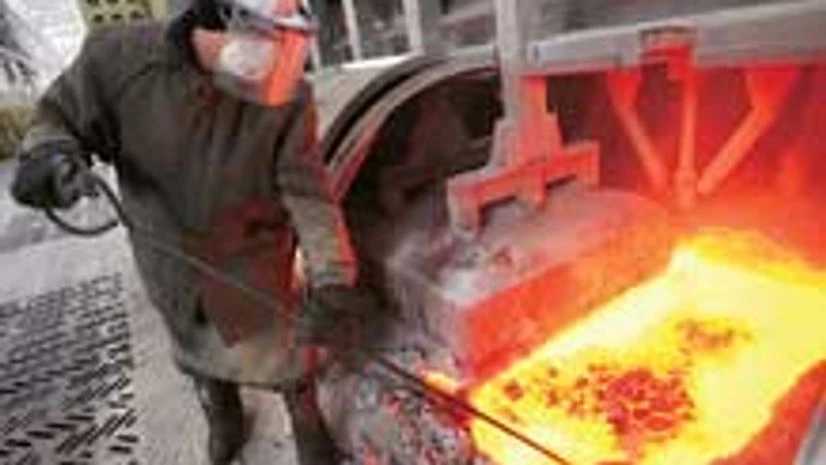Where declining steel prices have not spared large integrated domestic primary producers, an escape route for steelmaking raw material industries such as pellets, sponge and pig iron units, even smaller in size, does not arise.
Due to this, in the past three or four months, several sponge iron units across the country have shut down, pellet plants have been unable to sell and the pig iron industry has seen capacity utilisation drop significantly.
Pig and sponge iron are two different forms that are the result of different production processes. Sponge iron is used by mini-steel mills to improve the steel they produce, while pig iron is used mainly by foundries. Iron ore pellets are spheres used as raw material for blast furnaces at steel plants.
“Concerns over staying afloat have risen in the sponge iron industry as moving in line with steel prices’ rates of sponge iron have dropped to Rs 3,000 per tonne from Rs 22,000 a year ago,” Deependra Kashiva, executive director of the Sponge Iron Manufacturers Association, told Business Standard.
“The industry has an annual capacity of 50 million tonnes but currently is producing only 17-20 million tonnes. When an industry is running at 30 per cent of the total capacity, it can never make money,” he added.
ALSO READ: Global woes pull down Indian steel sector
There have been several shutdowns in recent months, mainly in Karnataka and Chhattisgarh, according to industry executives. “Of the 66 units in Karnataka, 36 have shut down, two have been sold at the scrap rate and the rest are running at half the capacity. This is the situation in one state,” said Kashiva. “Chhattisgarh is no different. With 75 sponge iron units, several shutdowns have taken place there, too,” he added, stating numbers were not immediately available.
Most sponge iron industry executives said apart from low steel prices, lack of quality raw materials like iron ore and non-coking coal at the right price was also posing an issue.
“Ore prices have come to $40 a tonne globally, but Odisha is selling ore at Rs 5,000 a tonne,” said an industry executive. The road ahead for the sponge iron industry looks tough as demand improvement is not expected at least until September, due to the monsoons. Industry executives said if the monopoly of Coal India and NMDC over coal and iron ore, respectively, was done away with, the industry could still manage. “Prices of the two raw materials should be discovered by market forces. Then it will be fair for the industry. We are not afraid of competition, whether it is China or any other channel, we can manage. But the raw material price has to be fair,” said Kashiva.
ALSO READ: Pig iron makers see bearish market ahead
Meanwhile, the domestic pellets industry seems to be staring into space. “In the past four months, we have not been able to sell at all. We are holding a stock of 100,000 tonnes of pellets and do not know what to do with it,” said Jay Kumar, in charge of sales at government-run KIOCL . With a pellet capacity of 3.5 million tonnes, which is likely to run at less than half the utilisation in the current financial year, the company sees no point selling its commodity at a price lower than production cost.“We have a board meeting to tomorrow (Friday), where we will be deciding what needs to be done,” said Kumar.
The pig iron industry, however, seems, more optimistic despite the challenging phase it is going through.
“Pig iron being part of the steel industry community, is certainly impacted. This is also evident from the fall in the industry's capacity utilisation by 25 per cent from last year. But we are hopeful that demand will pick up post-monsoon,” an executive with Tata Metaliks said.“Currently, prices of pig iron have come down to that of steel scrap. Due to this, there is more demand for better material--pig iron--for the price of scrap. This is helping us,” said the executive.
Normally, pig iron prices are higher than scrap steel as the former offers much better quality when added to steel.

)
